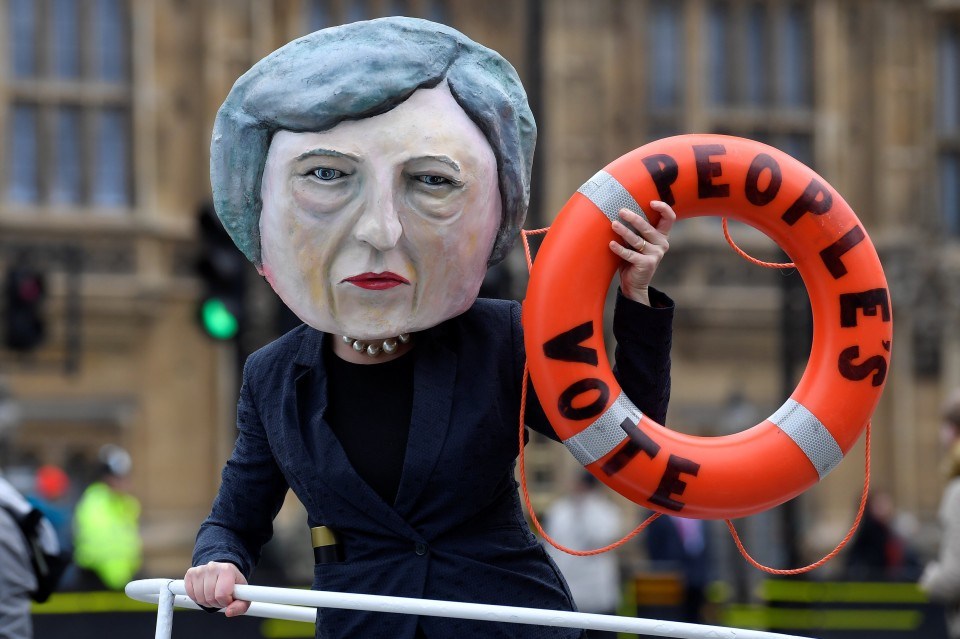Andy Burnham is a British Labour politician currently serving as the mayor of Greater Manchester. He was a member of Parliament from 2001 to 2017 and was shadow home secretary at the time of the 2016 Brexit referendum.
MANCHESTER, England — Right now, politics in the United States and the United Kingdom couldn’t be more in sync. Faced with a crisis, both countries are locked in political paralysis. Populist, right-wing movements that fed off disillusionment with Washington and Westminster have made both places even more dysfunctional than they were before.
In the United Kingdom, supporters of Brexit promoted it as a statement of their country’s strength and independence. But it has achieved the opposite. It has weakened the bonds between our four “home” nations —England, Wales, Scotland and Northern Ireland — and raised again the prospect of the break-up of the United Kingdom.
On Tuesday, British Prime Minister Theresa May’s deeply flawed Brexit deal was voted down in Parliament 432 to 202. After such a crushing defeat, we cannot let May continue rowing us blindfolded to God knows where. Starting tonight, she and the rest of the country need a change of course.
I had a ringside seat when things started to go wrong. At the time of the Brexit referendum in 2016, I was the shadow home secretary, May’s opposite number in the House of Commons. Days after the British people voted to leave the European Union, I brought a motion calling on May, who was then home secretary, to give immediate status to all E.U. nationals living in the United Kingdom on the basis that they had been invited in by us, had made our country their home and were contributing to our economy and public services. It would be a big gesture that would set a constructive tone for the difficult discussions that lay ahead with the other 27 E.U. member states.
Members of Parliament on all sides backed this motion. Even Boris Johnson, who led the Brexit campaign as London mayor, stood up to offer his support. But May, with her eyes on the prize of the leadership of the Conservative Party, instructed her members of Parliament not to support it and started ramping up anti-E.U. rhetoric. In retrospect, this hardline approach was a major strategic mistake. It played right into the E.U.’s goal of making an example of the United Kingdom.
This is how we ended up with the flawed deal that Parliament just rejected. The E.U.’s insistence on making the United Kingdom agree to a detailed divorce settlement while offering only vague promises about the future was never going to be a winner. Although the United Kingdom must shoulder most of the responsibility for where it is today, the E.U. is not blameless. While the prime minister used the negotiations to try and impress the hardliners in her own party, the E.U. was focused on trying to ensure their remaining 27 members didn’t follow Britain’s path. With both sides using the negotiations to send messages, a successful outcome was unlikely.
From here, British Conservatives must reject the confrontational, divisive approach favored by the new populist right and instead return to the old, unfashionable but tried-and-tested politics of cross-party compromise and international cooperation. The United Kingdom is scheduled to leave the E.U. on March 29, whether we’ve reached a deal with the union by then or not. Leaving without a deal would result in chaos. Thus, we need to take a number of practical steps.
First, we should establish where consensus actually exists. That means holding a vote to reject any possibility of leaving the E.U. with no deal, a motion that I believe would command a majority in Parliament. Second, May should open a discussion with the E.U. about the possibility of extending the March 29 deadline by three months.
Third, we should establish a cross-party commission of senior politicians to be the sounding board for U.K. negotiations. This should involve not just national politicians but also local leaders and mayors to bring a much-needed, locally-sourced dose of pragmatism to the fevered national debate.
These three moves would lower the temperature and create a better climate for discussion with the E.U. That, in turn, would allow Britain to ask the E.U. to fill in some of the gaps in its vague proposal and to get a stronger, more sensible set of customs and trading arrangements.
I am still of the view that the best course of action from here is to reach a deal with the E.U. The alternative of a second referendum may not actually solve anything and instead only deepen national divisions. But if we get any closer to the possibility of no deal at all, then a new vote might be necessary to stop the nightmare of no deal.
Beyond all the technical debates of Brexit, we all need to get much wiser to the anarchic tactics of the populist right. On both sides of the Atlantic, a clear pattern is emerging. Our great nations have been reduced to a narrow and divisive stand-off over immigration. This is not a coincidence; it is a deliberate strategy. No good will come of it.
My greatest regret is that, in 2016, we didn’t make the patriotic case for remaining in the E.U. After all, it was Winston Churchill in 1946 who first called for a “United States of Europe.” It is time to remind these false patriots of the new right of this simple fact: through our shared history, the United Kingdom and the United States were at their greatest when they built bridges, not walls.
This was produced by The WorldPost, a partnership of the Berggruen Institute and The Washington Post.





